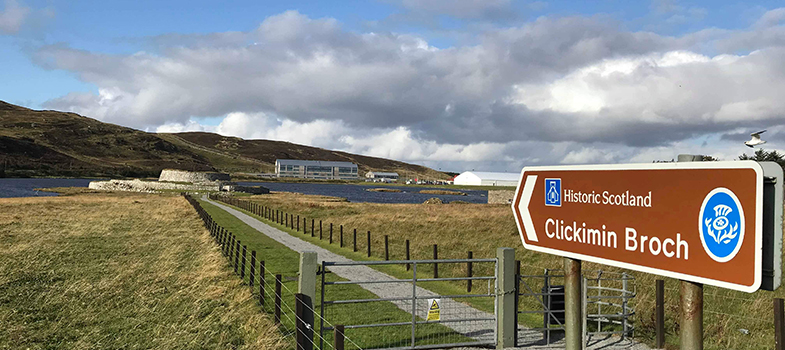11.2 Scots in the Middle Ages
The Scots Language came into being – and came into its own – during the Middle Ages. It was at this time that what had been a northern variety of Old English developed into distinct and recognisable Scots, and took over from Gaelic as the main language spoken by the monarchs, the nobles and the peasants of Lowland Scotland.
By about the year 1450, Scots had supplanted Latin as the main language for all official documents and nearly all literary writing in Scotland. The language of state in Scotland during the Middle Ages was Scots, and from the year 1462, the statutes – or laws – of the Scottish Parliament were recorded in Scots.
Activity 5
In this activity, you will consider what form the public reaction would take if the Scottish Parliament today were to return to writing laws and official communications in Scots. You will work with a colourful example from the reign of James IV, which is an extract from the Statues of the Scottish Parliament from 18th February 1490, addressing malpractice among goldsmiths.
- a.Listen to the extract and establish what the goldsmiths were accused of doing wrong as well as what the parliament decreed to put an end to this malpractice. As always, try to listen first without reading the transcript at the same time.
- b.Then compare your notes with the translation in the answer. Can you spot some characteristics of Old Scots as opposed to the Scots you have come across in part 1 of this course?
Transcript
Item, as tuiching the articule of goldsmythtis, quhilkis layis and makkis false mixtouris of ewill metale, coruppand the fyne mettall of gold and silver in dissate of oure soverane lord and his liegis that gerris mak werkkis of golde and silver, for reformacioune and eschewing of the sammyn, it is now avisit and concludit that na goldsmythtis sall mak mixtour nor put false layis in the said mettallis.
Answer
a.The goldsmiths were found to mix gold and silver with other metals and claiming these mixtures to be gold and silver, thus misleading their clients such as the King.
To tackle this malpractice, goldsmiths were from the date of the declaration onwards forbidden to produce mixtures of gold and silver with other metals.
b.Translation:
Item, as touching the article of goldsmiths, who debase and make false mixtures of bad metal, corrupting the fine metal of gold and silver, deceiving our sovereign lord and his lieges who have them create pieces in gold and silver, for the remedy and eschewing of the same, it is now advised and concluded that goldsmiths shall not make mixtures or put false alloys in the said metals.
Some linguistic features of Older Scots to note here include the plural forms of nouns which end in ‘…is’ (“Goldsmithis’, ‘mixtouris’); the ‘…and’ ending for present participles (“coruppand’); the use of the spelling ‘quh…’ for ‘wh’ at the beginning of certain pronouns or interrogatives; and the use of ‘mak’ or ‘makkis’ for ‘make’ or ‘makes’.
Much of the great literature of the Middle Ages in Scotland was connected to the royal court. Many of Scotland’s monarchs were themselves poets, or ‘makars’, as they are known in Scotland. James I was Scotland’s first poet king. While he was imprisoned in England during the early 15th century James wrote a long Scots poem called The Kingis Quair (The King’s Book).
The Scottish monarchs promoted cultural activity by employing court poets, who would write poems on all kinds of topics. These poems would then be performed for the entertainment of the court.
The most celebrated of the medieval makars was William Dunbar [Tip: hold Ctrl and click a link to open it in a new tab. (Hide tip)] , who was the court poet of King James IV. Dunbar was able to produce beautiful devotional poetry on the one hand, and shocking yet hilarious, vulgar verbal duels, or ‘flytings’, on the other.
Activity 6
Dunbar was unusual as a medieval poet because he sometimes wrote about quirky or personal topics, as in this verse from a poem about a recurrent migraine.
Part 1
Listen to the verse and try to understand what effects of migraine Dunbar describes. Also read out the verse and record yourself, then compare your recording with Jeremy Smith reading.
Transcript
Listen
My heid did yak yester nicht,
This day to mak that I na mycht,
So sair the magryme dois me menyie,
Perseing my brow as ony ganyie,
That scant I luik may on the licht.
Model
My heid did yak yester nicht,
This day to mak that I na mycht,
So sair the magryme dois me menyie,
Perseing my brow as ony ganyie,
That scant I luik may on the licht.
11.1 What the Scots language is, and what it is not
